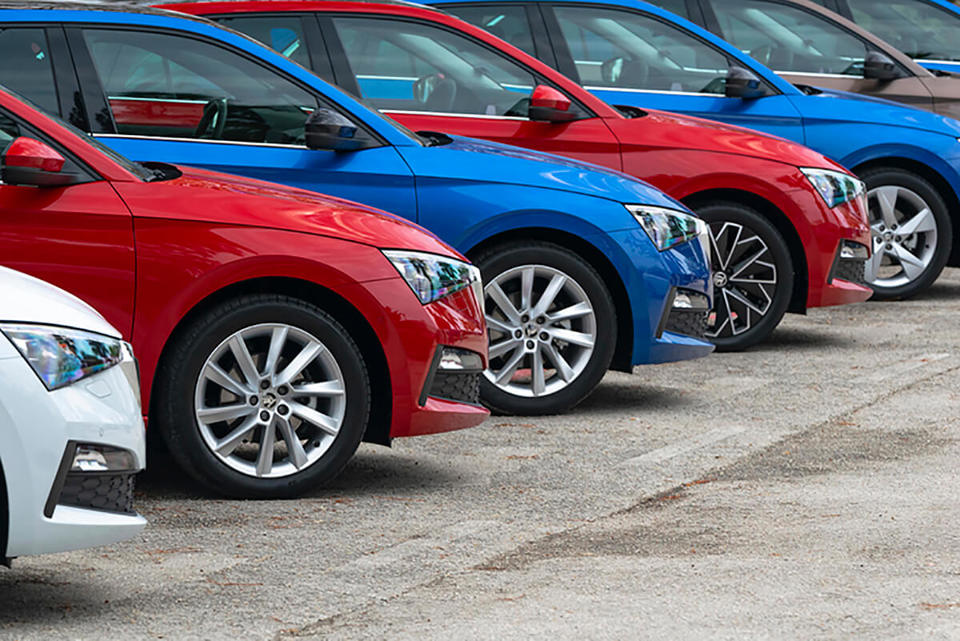A council has cut its staff travel bill by more than a quarter of a million pounds in just two years after launching a pool car scheme.
However, as well as slashing its costs by 12%, Dumfries and Galloway Council has also cut its annual grey fleet mileage in half.
In 2008/09, 4,000 employees were travelling in the region of six million miles a year in their own cars on council business – the so-called grey fleet. Two years later and annual grey fleet mileage is now three million miles.
Harry Thomson, head of integrated transport and commissioning, said: “Historically, the problem with grey fleet was that it wasn’t seen as any particular person’s responsibility.
“It wasn’t HR, it wasn’t fleet and it certainly hadn’t been under the line manager’s control. However, we realised that it was something we needed to quickly get a grip of.”
Faced with ever-increasing costs and the need to find savings across the local authority, Dumfries and Galloway Council embarked on launching a 100-strong, centrally-controlled pool car scheme in 2009.
The council also needed to overcome a problem of staff potentially refusing to drive their own vehicles on business after the withdrawal of their lucrative reimbursement scheme.
As a result of implementing Single Status – a programme to remove pay inequalities across the council – employees lost their essential user allowance.
This consisted of a lump sum payment of £822 per year for grey fleet drivers and a mileage rate of 35.1 pence per mile for the first 8,500 miles.
Casual users received 53.65ppm for the first 1,000 miles and then 43.65ppm thereafter up to 8,500 miles. Anything above 8,500 miles for both essential and casual users was reimbursed at 12.6ppm.
Employees who now drive their own cars on council business do not receive a lump sum and instead are reimbursed at AMAP rates of 45ppm for the first 10,000 miles and 25ppm thereafter.
The pool car scheme would therefore help overcome any fallout from the change in the reimbursement scheme, while helping the council to better control costs and tackle grey fleet usage.
Thomson said: “The essential users’ scheme was an issue, especially with many of them doing less than 1,000 miles a year.”
At 1,000 miles a year, essential users were effectively being paid 117ppm.
He continued: “However, because it was a condition of contract we could not remove it. Single status resolved that issue.”
The pool of 100 vehicles, which is based across 23 locations, is leased from ALD Automotive and Lex Autolease on a three-year/45,000-mile contract. CO2 emissions are below 120g/km for all vehicles and all are fitted with tracking devices.
“As far as we are aware at the time we went live, no other local authority had implemented such a significant pool car service in terms of either numbers or geography,” said Thomson.
“We now have better control over employee journeys and can monitor where vehicles are.
“We have also reduced our grey fleet mileage, costs of staff travel and reduced our CO2 emissions by 75 tonnes.”
However, the next step for Thomson is to bring 87 pool cars being operated by individual departments under central control to complement the 100-strong fleet and further drive down grey fleet mileage, as well as the costs the council incurs.
Civica helps develop pool car booking solution
Central to the success of the Dumfries and Galloway Council pool car scheme was having an accessible, easy-to-use booking system.
The local authority decided to employ the help of Civica, its existing fleet management system supplier, to develop a pool car booking system in Tranman.
The system provides an availability search based on time, dates and location. From the list of pool vehicles available, drivers can then select a vehicle and make a booking. They enter their details including name and employee number and the system then checks the date of their last licence check.
Once the booking is complete, confirmation is automatically produced and can be either saved or printed.
The pool car web application also allows drivers to enter their employee number and view the details of any future bookings.
Initially, the council trialled booking pool cars by telephone or email, but quickly decided the best option was to provide access to pool car booking online.
Staff can now check availability and make bookings without having to contact the fleet team and bookings can be made at any time.
Vehicle keys are held by existing reception staff at a number of council offices. They release keys to drivers and update Tranman to indicate the keys have been picked up or returned.
“Having the correct booking system was essential,” said Thomson. “We looked at several commercially available options, but none were designed for running an in-house pool fleet.”
Two years later and pool vehicle utilisation is at 80%, and the target for next year is to increase mileage in the vehicles by prioritising longer journeys.




















Login to comment
Comments
No comments have been made yet.